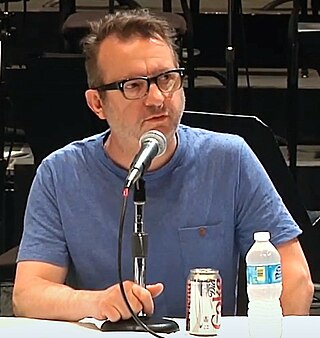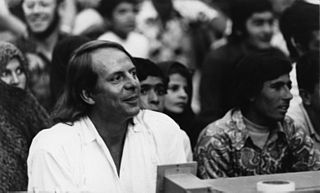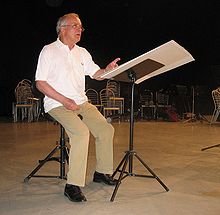
A musical ensemble, also known as a music group or musical group, is a group of people who perform instrumental and/or vocal music, with the ensemble typically known by a distinct name. Some music ensembles consist solely of instrumentalists, such as the jazz quartet or the orchestra. Other music ensembles consist solely of singers, such as choirs and doo-wop groups. In both popular music and classical music, there are ensembles in which both instrumentalists and singers perform, such as the rock band or the Baroque chamber group for basso continuo and one or more singers. In classical music, trios or quartets either blend the sounds of musical instrument families or group instruments from the same instrument family, such as string ensembles or wind ensembles. Some ensembles blend the sounds of a variety of instrument families, such as the orchestra, which uses a string section, brass instruments, woodwinds, and percussion instruments, or the concert band, which uses brass, woodwinds, and percussion.

Mark-Anthony Turnage CBE is an English composer of contemporary classical music.

Robert Eugene Ward was an American composer who is best remembered for his opera The Crucible (1961) after the 1953 play of the same name by Arthur Miller. He was awarded the Pulitzer Prize for Music for that opera in 1962.

David Nathaniel Baker Jr. was an American jazz composer, conductor, and musician from Indianapolis, as well as a professor of jazz studies at the Indiana University Jacobs School of Music. Baker is best known as an educator and founder of the jazz studies program. From 1991 to 2012, he was conductor and musical and artistic director for the Smithsonian Jazz Masterworks Orchestra. He has more than 65 recordings, 70 books, and 400 articles to his credit.

Magnus Gustaf Adolf Lindberg is a Finnish composer and pianist. He was the New York Philharmonic's composer-in-residence from 2009 to 2012 and has been the London Philharmonic Orchestra's composer-in-residence since the beginning of the 2014–15 season.
Walter Sinclair Hartley was an American composer of contemporary classical music.
Toimii is an ensemble for new music founded in the spring of 1980 by Finnish composer Magnus Lindberg with several other young composers and instrumentalists connected with the Sibelius Academy. Along with the new-music appreciation group Korvat auki, it did much to bring new music to listeners in Finland in the 1980s and 1990s.

Aus den sieben Tagen is a collection of 15 text compositions by Karlheinz Stockhausen, composed in May 1968, in reaction to a personal crisis, and characterized as "Intuitive music"—music produced primarily from the intuition rather than the intellect of the performer(s). It is Work Number 26 in the composer's catalog of works.
Morris David Brough Pert was a Scottish composer, drummer/percussionist, and pianist who composed in the fields of both contemporary classical and jazz-rock music. His compositions include three symphonies, piano music, chamber and solo instrumental music, choral music and "sonic landscapes" for electronic media; a late major work is "Ankh" for Carnyx and electronics written for eminent trombonist John Kenny.
York Höller is a German composer and professor of composition at the Hochschule für Musik Köln.
Oliver Martin Schneller is a German composer and saxophonist.
Erich Urbanner is an Austrian composer and teacher.
Adriana Hölszky is a Romanian-born German music educator, composer and pianist who has been living in Germany since 1976.
James A. Beckel Jr. is a contemporary American composer and, as of 2012, principal trombonist of the Indianapolis Symphony Orchestra. His compositions have been performed and recorded by the Baltimore, Atlanta, Indianapolis Symphonies, Ft. Wayne Philharmonic, United States Air Force Band, the DC Air Force Orchestra, and many other nationally-recognized orchestras throughout the United States.
Roland Dahinden is a Swiss trombonist and composer.
?Corporel is a 1985 musical performance piece by composer Vinko Globokar. It calls for the performer to use their body as instrument, often by striking the body.

Friedrich Schenker was a German avant-garde composer and trombone player.
This page lists classical pieces in the trombone repertoire, including solo works, concertenti and chamber music of which trombone plays a significant part.
This page lists classical pieces in the tuba repertoire, including solo works, concertenti and chamber music of which tuba plays a significant part.
Michael Svoboda is an American composer and trombonist who lives and works in Switzerland.







